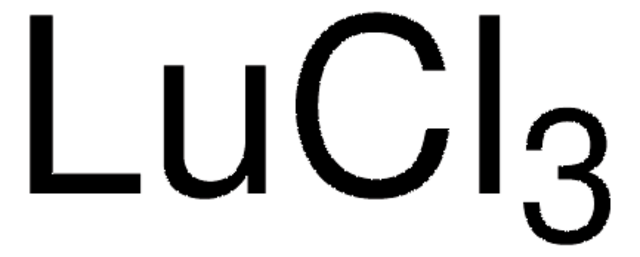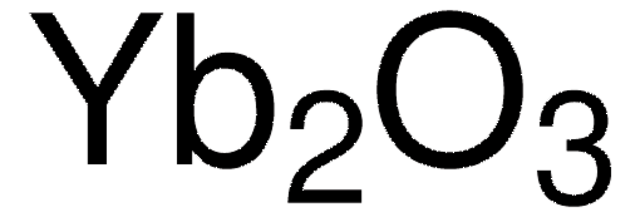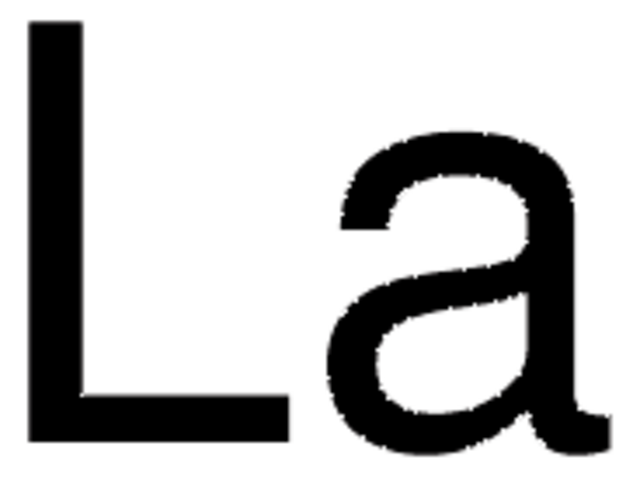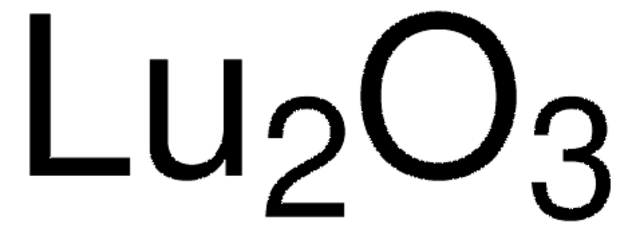GF58573648
Lutetium
powder, 1g, max. particle size 500 micron, 99.9%
Sinónimos:
Lutetium, LU006010
About This Item
Productos recomendados
assay
99.9%
form
powder
manufacturer/tradename
Goodfellow 585-736-48
resistivity
54 μΩ-cm, 20°C
particle size
500 μm
bp
3402 °C (lit.)
mp
1663 °C (lit.)
density
9.84 g/mL at 25 °C (lit.)
SMILES string
[Lu]
InChI
1S/Lu
InChI key
OHSVLFRHMCKCQY-UHFFFAOYSA-N
¿Está buscando productos similares? Visita Guía de comparación de productos
Categorías relacionadas
General description
Legal Information
signalword
Danger
hcodes
Hazard Classifications
Flam. Sol. 1
Storage Class
4.1B - Flammable solid hazardous materials
wgk_germany
WGK 3
flash_point_f
Not applicable
flash_point_c
Not applicable
Elija entre una de las versiones más recientes:
Certificados de análisis (COA)
It looks like we've run into a problem, but you can still download Certificates of Analysis from our Documentos section.
Si necesita más asistencia, póngase en contacto con Atención al cliente
¿Ya tiene este producto?
Encuentre la documentación para los productos que ha comprado recientemente en la Biblioteca de documentos.
Global Trade Item Number
| Número de referencia del producto (SKU) | GTIN |
|---|---|
| GF58573648-1EA | 4061825410074 |
Nuestro equipo de científicos tiene experiencia en todas las áreas de investigación: Ciencias de la vida, Ciencia de los materiales, Síntesis química, Cromatografía, Analítica y muchas otras.
Póngase en contacto con el Servicio técnico








